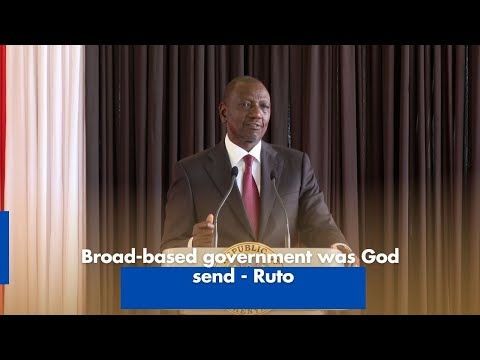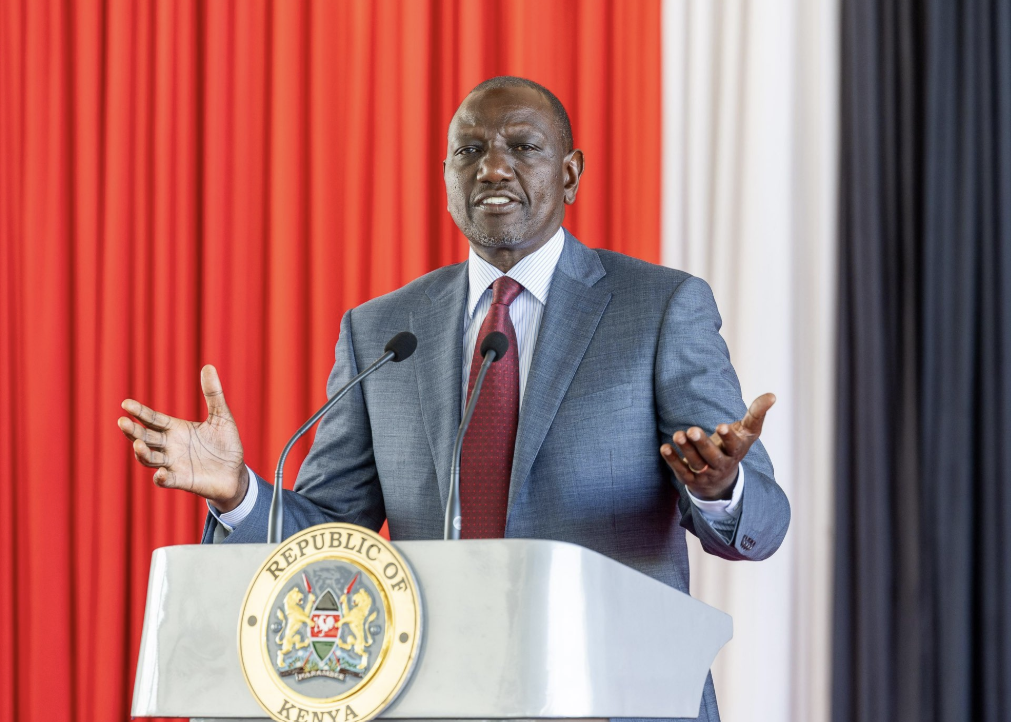
 President William Ruto speaks when he hosted a delegation from Kisumu county led by Governor Anyang' Nyong'o at State House, Nairobi, June 18, 2025. /PCS
President William Ruto speaks when he hosted a delegation from Kisumu county led by Governor Anyang' Nyong'o at State House, Nairobi, June 18, 2025. /PCSPresident William Ruto has defended the formation of the broad-based government, describing it as divinely inspired, even as public outrage grows over increasing police brutality.
In July 2024, Ruto made a dramatic political move by dissolving his cabinet and announcing plans to form a “broad-based government” in response to rising public anger over punitive taxes and deepening economic hardships.
Though both leaders denied entering into a formal coalition, Ruto and opposition chief Raila Odinga said their strategic rapprochement aimed to unite the country and restore public trust amid nationwide, youth-led protests.
Speaking on Wednesday at State House, Nairobi, while hosting a delegation of leaders from Kisumu county, Ruto insisted the unity government was not conceived by either him or Raila.
“The broad-based government is neither a creation of Baba [Raila] nor myself; it is God-sent,” Ruto told the delegation comprising MPs, MCAs, professionals, clergy, and elders.
He said the arrangement was necessary to create the political goodwill required to drive the country’s development agenda, adding: “Transforming a nation is not an easy task.”
Ruto emphasised that meaningful reforms cannot be implemented without broad political support—support he said had now been extended by the opposition.
The formation of the unity government has significantly altered Kenya’s political landscape, blurring the line between opposition and government after several Raila allies were appointed to key cabinet positions.
John Mbadi was named Treasury Cabinet Secretary; former ODM deputy party leader Hassan Joho took over the Mining docket, while Opiyo Wandayi and Wycliffe Oparanya were handed the Energy and MSMEs portfolios respectively—signaling a deepening alliance between the two camps.
Critics, however, accuse Ruto of co-opting the opposition to consolidate power rather than pursue genuine reform.
But the President maintains that the initiative is not about power-sharing, but about fostering inclusivity and national cohesion.
On 7 March 2025, Ruto and Raila formalised their pact at the Kenyatta International Convention Centre (KICC), committing to national consultation and political stability.
The 10-point agreement, among others, outlawed abductions and extrajudicial killings.
Since then, Raila’s allies have publicly backed the alliance, with some pledging to support Ruto’s re-election bid in 2027.
This follows shifting political realignments sparked by the impeachment of former Deputy President Rigathi Gachagua.
“I sincerely appreciate your support for the broad-based government, and I want to assure you that no Kenyan, no region, no community, no religion will be left behind. We are going to move forward together,” Ruto told the Kisumu delegation led by Governor Anyang’ Nyong’o.











